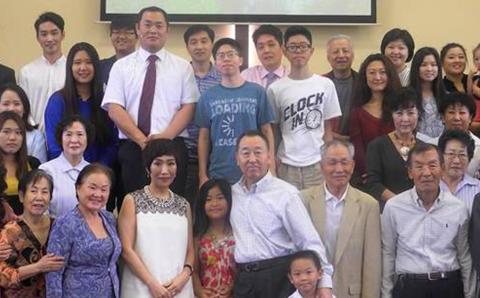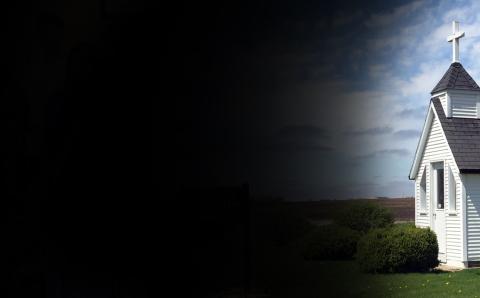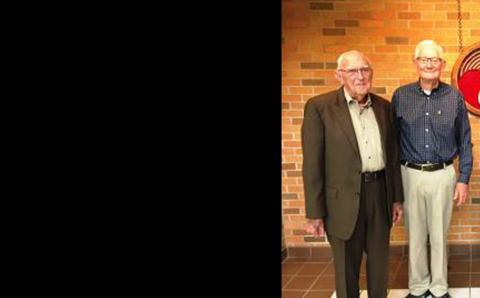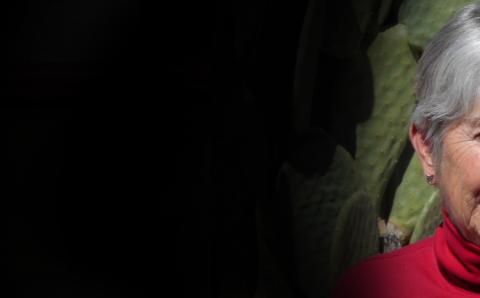God’s Dropped Stitches
As a retired teacher, I pray that I did not embarrass students, but I'm ashamed to say I probably did (“God’s Dropped Stitches). Your story makes me realize how important it is to treat all students with respect and love. God certainly used you mightily and you are a great example of forgiveness and determination. Thank you for sharing your story.
—Norma Eck, online comment
Ten Commandments
I am a lifelong member of the Christian Reformed Church. Not only do I miss the Ten Commandments (“Whatever Happened to the Ten Commandments?”) but a host of other practices that have been deleted from our liturgy. Just to name some, these include preaching from our Heidelberg Catechism, having a preparatory service prior to the Lord’s Supper celebration, and reciting our creeds and confessions (including the contemporary testimony “Our World Belongs to God.”)
All of these are as relevant today as they were in the past, so why get rid of them? I have yet to hear a satisfying answer; only “It’s a generational thing.” I’m looking forward to some positive changes.
—Dick Berentschot,
Whitby, Ont.
The summary of the law is the blueprint that should shape our Christian walk (“Whatever Happened to the Ten Commandments?”) But an overemphasis on the commandments can lead to them becoming a formality rather than a thankful response.
It has been a journey in the CRC to discover the implications of Pentecost. The Spirit of God dwells within each believer. The law of God has become internalized. We live with much higher demands than the limitations of the Ten Commandments; our love and passion for God’s kingdom should be evident to all. The Ten Commandments can be an instrument of self-examination, but thankfully the church has moved on to encourage spiritual maturity on all levels.
Times do change. My grandfather stormed out of church when hymns were added to a steady diet of singing psalms. Church liturgy and worship style are changing. And yes, the reading of the Law has declined. Is this a bad thing?
—Peter Reedyk
Belleville, Ont.
Drama of Doctrine
Amen! There is no greater investment we can make than catechizing our youth (“The Drama of Doctrine”). I've had the blessing of teaching doctrine to 14-year-olds for the last 20 years. The kids are hungry for the truth, eager to learn, quick to discuss, and consistent in applying the solid Reformed worldview they gain in their lives.
The greatest assets we have as a denomination are the Three Forms of Unity. All three of them are incredible teaching tools, and we need to take advantage of the centuries of wisdom and biblical truth they contain.
—Chad Werkhoven, online comment
As one who taught Bible to high school students for 40 years, I need to say our students do not know their catechism as folks my age once did (“The Drama of Doctrine”). But they know their Bible much better. They know of the kingdom of God; they understand biblical justice and the idea of bringing shalom to chaos. I believe we need to admit the questions have changed from the 16th century. We are no longer asking how we are different from the Catholic faith or our Mennonite brothers and sisters. We no longer need a condensed version of the Bible when we all own several Bibles. I cannot lament that young people do not know their catechism as much as I lament that older "saints" have no idea what Amos, Habakkuk, and Isaiah said about caring for the hurting in the world. I am all in for teaching the doctrines of the Bible, and I would put forth we have an excellent tool for doing that: the Bible.
—Dan Wolcott, online comment
A Single Story
I appreciated reading this, Heidi (“A Single Story,”). No one has ever wasted a moment by taking someone else’s story to heart.
—Michael Bentley, online comment
Reconciliation
I appreciate the passion of the group to share their experiences of their visit to this First Nations community (“Youth Ambassador of Reconciliation Visits Remote Aboriginal Community”). But what have we done that requires reconciliation? This Indigenous community, like many others, has chosen a path of living off the land far removed from the municipality where medical and social services are available. In many cases they continue to live where there is no living to be had. Generations later, they are facing devastating consequences. To pass on this legacy to the following generation is akin to abuse. Culture is important but should not replace knowledge. Is my church suggesting we are responsible for people who continue to make poor decisions for their families?
—George Kloet
Oakville, Ont.









